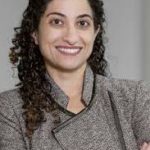This is a co-authored post with Carrie Booth Walling, Associate Professor and Chair of Political Science at Albion College. She is the author of All Necessary Measures: the United Nations and Humanitarian Intervention and articles on human rights trials, mass atrocity crimes, and the Security Council.
About a year ago, we started having frequent, intense conversations about how we could most effectively respond to increasing political polarization, heightened racial tensions, and recent bias incidents on our college campuses. The more we talked, the more we realized that political scientists across the United States were similarly struggling, but also that our discipline had the answers for how to maneuver contentious politics. We decided to reach out to our colleagues living and teaching in the United States and ask them three questions:
- What role should political scientists play in this current period of contentious politics?
- How can we build campuses to be both bastions of free expression and safe places for exploration?
- How should we engage our neighbors, communities, students and the public?
The result was a symposium published this month by PS: Political Science and Politics, “Contentious Politics in the United States: What Role for Political Scientists?” In it, we offer a toolbox of applied action created by political scientists for political scientists–we summarize some of those lessons in the chart below and link to the symposium essays.
What we’ve learned since the piece went to press, is that some of the trends we identified in our introduction have intensified including widespread distrust in government institutions and the press.
Most disheartening is that public trust in colleges and universities is newly on the decline with sharp partisan differences in views of how colleges and universities affect the US. Today, a majority of Republicans say that colleges and universities have a negative impact on the country. Of course, one data point is not a trend. Yet, the data seem to portend a degradation in the authority and credibility of academic institutions and expertise. It is perhaps time to consider how we might engage disaffected groups and restore trust in the academy.
The politics of speech on college campuses have become much more salient than it was even a year ago. We correctly identified the persistent threat of bias incidents on our campuses. By the time we went to press, however, we did not fully anticipate the degree to which debates over campus speech would mobilize our student bodies. Colleges and universities, which have always been sites of debate, have become battlegrounds where provocative speakers test ideological boundaries and dialogue is sometimes thwarted by student protests.
These incidents reveal tensions between the traditions of promoting inclusive values and protecting a diversity of ideological viewpoints, particularly when including all voices might create hostile learning environments. These protests raise both practical and political questions. How do we keep our students safe and protect our institutional commitments to diversity yet guarantee their right to free speech? Who decides which perspectives are appropriate? And how do we balance rights to speech with our academic mission to create, evaluate, and disseminate knowledge on the basis of the quality of ideas?
If our goal, as a discipline, is to create a campus culture that preserves a diversity of thought and where discourse is civil and respectful toward dissent, then our toolbox provides some insights on how to cultivate these environments. Our symposium authors show how to foster classrooms that are brave spaces where contestation is not feared, where diversity of thought is encouraged, and as much thought is dedicated to exploring the purpose of speech and its impact on community as our freedom to engage in it.
The symposium offers insight on ways to foster political participation; promote critical thinking through pedagogical interventions in the classroom; and how to use social media to counteract the negative impact of fake news. Authors offer suggestions for citizens seeking to build majoritarian social movements, increase civic engagement, and prevent bias incidents in their communities. We summarize some of these practical ideas in the toolbox below and invite you to explore the author’s broader arguments.
|
Political Science Tool Box |
| Classroom |
|
|
|
|
| Campus |
|
|
|
|
|
|
| Community |
|
|
|
|
|
|
Maryam Z. Deloffre is an Associate Professor of International Affairs, Director of Dean’s Scholars and Director of the Humanitarian Action Initiative at the Elliott School of International Affairs; a Mercator Fellow at the DFG Research Training Group – Standards of Global Governance (Germany); and an Associate Senior Fellow at Centre for Global Cooperation Research, Universität Duisburg-Essen (Germany). Her research focuses on the dynamics of global and humanitarian governance, humanitarian standard-setting, humanitarian and non-governmental organization (NGO) accountability, NGOs, and locally-led humanitarian assistance.


0 Comments